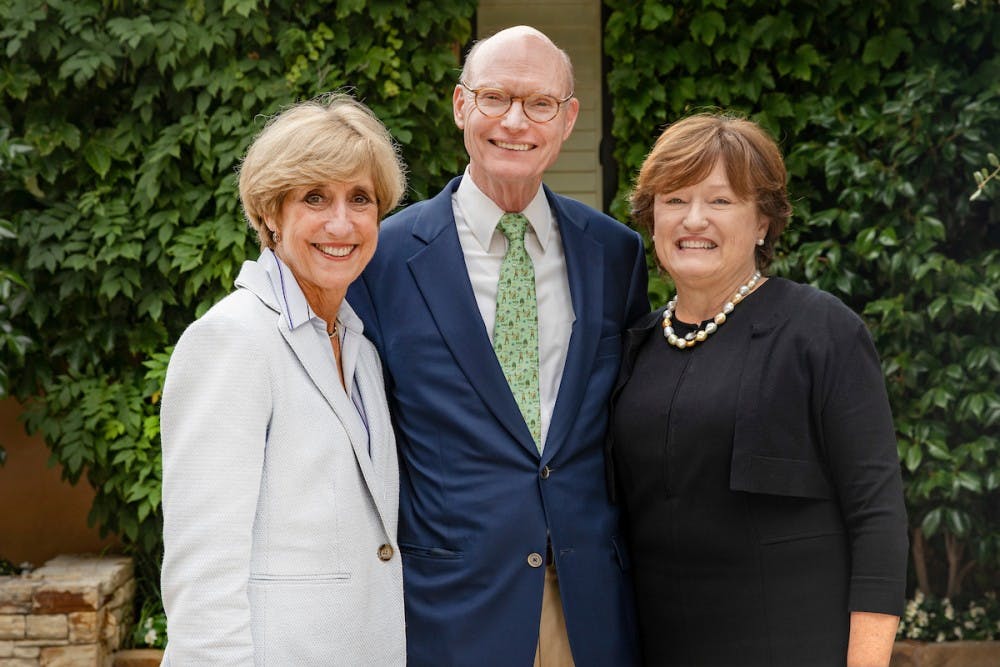After years without a formal name, our school now has one.
Over the past 70 years, we have been the School of Journalism, the School of Journalism and Mass Communication and, most recently, the School of Media and Journalism. The evolution in our name reflected the school’s commitment to preparing students for a changing industry with expanded programs and a dynamic curriculum.
Our top peers carry names like Newhouse, Cronkite and Annenberg. Leading schools on our own campus are known as Kenan-Flagler, Gillings, Eshelman and Adams.
Now we are the UNC Hussman School of Journalism and Media — a school with its values etched in stone.
Our values make it clear that what we teach in journalism, public relations and advertising is protected by the First Amendment. That all of our students are grounded in the belief that our work is about communicating truthfully. And that our graduates are committed to serving communities and working on the front lines of democracy where information ignites the public conversation and nurtures citizenship.
This is an important moment for the school and for the journalism and media industries. Trust in journalism is in a free fall — Walter Hussman and his family know that. Their flagship newspaper in Little Rock, Arkansas will celebrate its 200th anniversary later this year. But Walter Hussman is not trying to preserve print — he is trying to preserve accurate, trusted information and the ability of citizens to practice democracy.
He is experimenting with iPad distribution of his newsroom’s work. The Arkansas Democrat-Gazette isn’t delivered by truck throughout Arkansas anymore. Instead, it’s available digitally on iPads that he provides, with free subscriptions that offer video, photo slideshows and the ability to enlarge the type.
He is an innovator as well as a dreamer. He cares about the journalistic values of truth, fairness, accuracy, impartiality and deep reporting so that readers, viewers and listeners can make informed decisions about their future.
Walter Hussman has a long tradition with UNC. His sisters attended UNC; he graduated in 1968; both of his daughters did their undergraduate work at Carolina; and his daughter Eliza also earned her master’s degree at our school. They are Tar Heels standing tall at this moment of challenge in the world of media, when digital dislocation and new economic realities are challenging the future of the industry.




